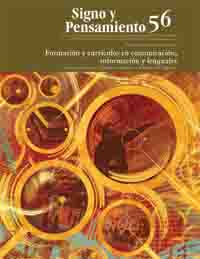Resumen
A comienzos del siglo XXI no se puede seguir pensando el concepto de “modernidad” como un modelo de desarrollo único y monolítico que sigue patrones claramente occidentales. Reconocer en el mundo actual una gran diversidad cultural y una pluralidad de pensamiento, obliga a pensar ya no en una modernidad, sino en múltiples modernidades: cada una de ellas respondiendo a condiciones de tradiciones y culturas específicas. Este artículo explora la producción intelectual y académica que ha generado América a través de su historia. A partir del análisis de líneas antropológicas y de pensamiento intelectual, compara dos conceptos radicalmente distintos de modernidad y desarrollo. Uno en América Latina, que aún hoy puede ser llamado teocéntrico, y otro en Norteamérica que, más influenciado por el modelo europeo, es antropocéntrico.
Esta revista científica se encuentra registrada bajo la licencia Creative Commons Reconocimiento 4.0 Internacional. Por lo tanto, esta obra se puede reproducir, distribuir y comunicar públicamente en formato digital, siempre que se reconozca el nombre de los autores y a la Pontificia Universidad Javeriana. Se permite citar, adaptar, transformar, autoarchivar, republicar y crear a partir del material, para cualquier finalidad (incluso comercial), siempre que se reconozca adecuadamente la autoría, se proporcione un enlace a la obra original y se indique si se han realizado cambios. La Pontificia Universidad Javeriana no retiene los derechos sobre las obras publicadas y los contenidos son responsabilidad exclusiva de los autores, quienes conservan sus derechos morales, intelectuales, de privacidad y publicidad.
El aval sobre la intervención de la obra (revisión, corrección de estilo, traducción, diagramación) y su posterior divulgación se otorga mediante una licencia de uso y no a través de una cesión de derechos, lo que representa que la revista y la Pontificia Universidad Javeriana se eximen de cualquier responsabilidad que se pueda derivar de una mala práctica ética por parte de los autores. En consecuencia de la protección brindada por la licencia de uso, la revista no se encuentra en la obligación de publicar retractaciones o modificar la información ya publicada, a no ser que la errata surja del proceso de gestión editorial. La publicación de contenidos en esta revista no representa regalías para los contribuyentes.


